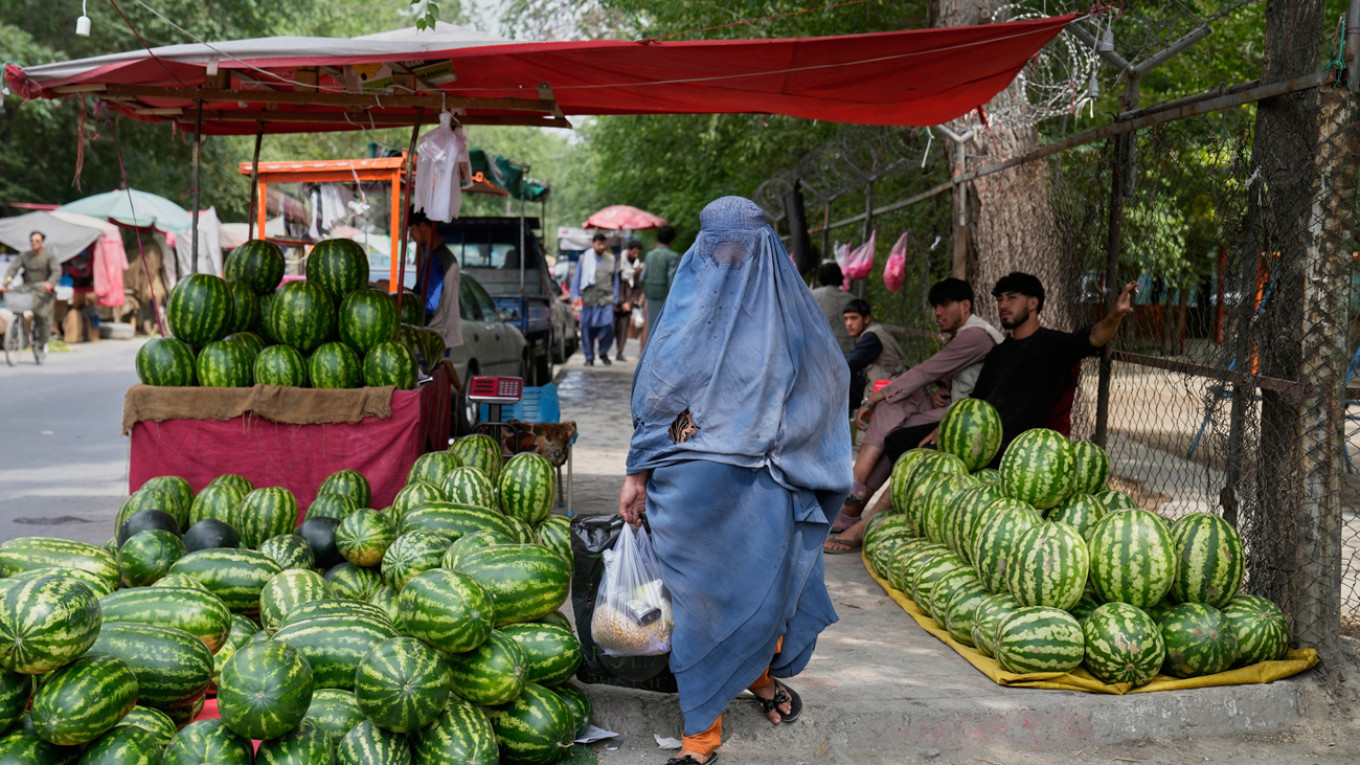A Russian telecommunications equipment developer subject to U.S. sanctions set up 4G mobile network systems in Afghanistan last year, allowing mobile services to reach as many as 10 million residents, as reported by the business newspaper Vedomosti on Thursday.
This development underscores the strengthening relationship between Moscow and the Taliban since the Islamist group regained control in 2021 after the U.S. military’s withdrawal from the country.
According to Vedomosti, the installation of a 4G core network—the essential infrastructure necessary for mobile services—by the St. Petersburg-based company Protey represents the first instance of the firm exporting its technology internationally.
This core network was created in collaboration with Russia’s state-run telecom provider Rostelecom and is claimed to be the first domestic system capable of replacing foreign technology and software.
Protey’s activities come in the wake of significant telecom companies like Ericsson and Nokia withdrawing, as well as reductions in operations from Chinese firms such as Huawei and ZTE following the Taliban’s resurgence.
The Russian-developed core network was implemented in four of Afghanistan’s 34 provinces in 2024, according to Alesya Mamchur, Vice President of Rostelecom, who did not specify the exact locations. She noted that the infrastructure is expected to provide mobile connectivity for around 10 million of Afghanistan’s roughly 40 million inhabitants.
Protey has been under U.S. sanctions since last year for its involvement in an economic sector identified as contributing to Russia’s military-industrial complex.
On April 17, the Supreme Court of Russia removed the Taliban from its list of designated terrorist organizations, a designation it had held since 2003. While this does not amount to a formal recognition of the Taliban government, the decision indicates a shift in the Kremlin’s approach to forging new regional alliances following its invasion of Ukraine, which has strained traditional partnerships.
Officials from Russia and the Taliban have since committed to transitioning trade payments to their national currencies, establishing railway links, and rehabilitating a crucial highway built during the Soviet era that connects Kabul to northern Afghanistan and Central Asia.

